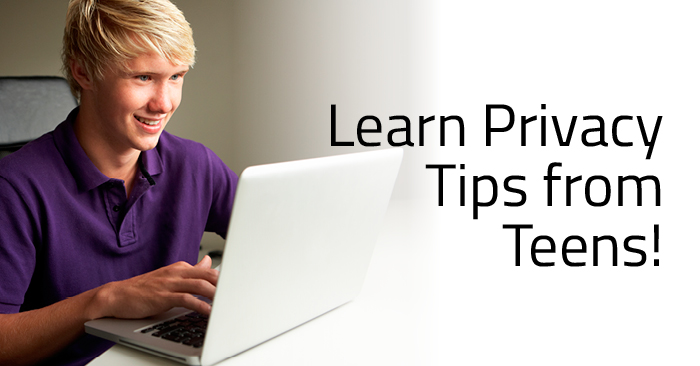How to get a Finnish IP address
The easiest way to improve your digital privacy is to switch your IP address using a VPN. We’ll …


Teenagers are the unwired generation. Everywhere you go, you see young people liking, tweeting, texting, messaging, taking selfies, and doing a dozen other things on social media. They’re eager to share their lives with their peers and, it seems, the world in general. Because it seems like teenagers can’t live without a data connection, many people believe that they don’t care about online privacy. Happily, that isn’t the case. You may even be able to learn a thing or two from the way teens conduct themselves online.
Vaguebooking is just what it sounds like. Instead of spilling out all the details of what’s going on in your life, you give a sense of what happens without putting a magnifying glass to every bit of it. For example, instead of saying that you paid $200 for a new handbag, you might just take a picture of your new prize without mentioning the price or the brand name; that way, you are less likely to tempt would-be thieves.
Can teens really restrain themselves from bragging about things that might make them a target? Yes. Research shows that they engage in vaguebooking as well as other safety-conscious online practices.
Honesty is the best policy—usually. However, most teenagers recognize that too much honesty is an open door for cyber villains to uncover even more personal details, details that could lead to identity theft or worse. It’s a smart practice to change a few personal details on social media. You could say you live in the next town over, or you might use a slightly different way of spelling your name.
The high school football team had a great time at that party, but not everyone there was on their best behavior. Someone decides to post pictures of the party online, and the tags on those photographs reveal exactly who was there. Depending on the privacy settings of the person who posted the photographs, a simple online search could reveal exactly who was at the party and damage the reputations of everyone whose names are revealed in those pictures.
Untagging photographs can do more than just protect your reputation, though. It also helps prevents the bad guys from tracking your activities and likes and dislikes. If someone steals your identity and knows things like where you frequently go and what you spend your money on, it will likely take longer before your credit card company raises a red flag.
Some teenagers have secret secondary accounts on social media. What is the advantage? You can have one account that you use for things like signing into websites, playing online games, keeping up with your favorite celebrities, and making fun posts that don’t reveal too much about you. You can use another account to share things with your close friends; keep the privacy settings on that account locked up tight.
When was the last time you took a serious look at your friends list or followers list? Do you know and trust all the people there? Teenagers aren’t afraid to unfriend and block people who have fallen on their bad side. True, with teenagers, this isn’t always a case of being privacy savvy—it might be more a case of high school drama—but it is still a sound practice.
Another way you can follow the example of teenagers when it comes to data privacy is by staying on top of your privacy settings. The Guardian points out that a Pew Report “found teenagers cared enough about online security for 60% to set their Facebook profiles to ‘private’ and to judge privacy settings ‘not difficult at all.'”
Teenagers may set a good example in a lot of ways, but they don’t always do it with the right motives. The Guardian article mentioned above quotes a social media researcher who says, “What matters to them is social privacy: it’s about how to control a social situation, which is something very different from controlling information.” In fact, very few teens actually care that third parties, such as the government or businesses, might be looking at their information.
When you’re online, think about the big picture, including both your social life and the value of your private data. Your online activities leave fingerprints of information that may be tracked and monitored by your Internet Service Provider, your network administrator, or the NSA. To secure your data from hackers and make sure no one tracks your online activities, use Hotspot Shield. It will encrypt all your internet traffic and mask your IP address so you can enjoy a secure online browsing experience.
Teenagers grew up in the age of information, and they know how to conduct themselves online. Even adults can learn from their example.
Hotspot Shield Elite enables you to protect up to 5 devices simultaneously (Android, iOS, Mac, Windows). Upgrade to Elite now to start protecting all your family.
